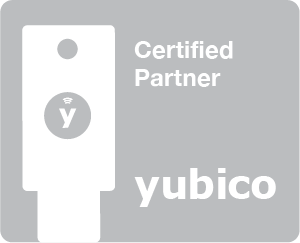What is a lithium ion battery?
A lithium ion battery or also abbreviated as Li-ion or Lilon battery is a rechargeable battery that stores electrical energy. A rechargeable battery always stands for the characteristic of being rechargeable, whereas the lithium ion battery must be disposed of after a complete discharge. The Li-ion battery has the advantage of a high energy density due to the storage of energy between the two electrodes.
What is the voltage of a lithium ion battery?
The voltage of Li-ion batteries is 3.3 - 3.8 V and is therefore more powerful than, for example, a nickel metal hydride battery (NiMH for short) or nickel cadmium battery (NiCD for short), as the nickel variants can only provide 1.2 V of voltage.
For a lithium-cobaldioxide battery, the nominal voltage is 3.6 V. For a lithium-manganese dioxide battery, the nominal voltage is 3.7 - 3.8 V. For a lithium iron phosphate battery, the nominal voltage is 3.3 V.
The nominal voltages play a major role in the selection of chargers and, if in doubt, should be read from the data sheet or the packaging in order to preserve the battery's service life for as long as possible.
The end-of-charge voltages as well as permissible end-of-discharge voltages must be suitable for the battery type in order to avoid possible damage to the battery.
What should be considered for a lithium battery?
Deep charge
Most batteries should only be discharged to 50% to prevent them from breaking, but a lithium battery can easily be discharged up to 90% without being affected. As compact and powerful as the Li-ion battery is, it is important to pay attention to how it is recharged. The so-called deep discharge is the biggest risk for the battery. If a charger for Li-ion batteries does not offer protection against the overcharging of a battery, the overcharging can cause irreparable damage or destruction of the lithium batteries, which can make the battery unusable. For this reason, most products with permanently installed Li-ion batteries, such as cell phone manufacturers, powerbanks or similar products, have installed a technically intelligent protection circuit to protect the batteries during deep charging.
Hazardous material
Lithium-ion batteries are classified as "dangerous goods" according to international transport law. Lithium batteries are completely safe at non-extreme temperatures and without damage, but if damage should occur, it is recommended to replace it immediately. Lithium batteries must not be exposed to extreme temperatures. It does not matter which compound of the chemical type is present.
Temperature sensitivity
Li-ion batteries are very sensitive to temperatures that are significantly above/below room temperature. The ideal operating temperature is between approx. 20 - 40 °C. If the operating temperature is slightly below or above this, the performance of the battery will decrease for the time being. If the temperatures are extremely above/below this, a chemical reaction could occur within the battery, which in the worst case could lead to a fire with heat of up to 1000 °C or to an explosion of the battery, which is why devices with installed batteries should always be kept away from easily flammable objects for charging.
Are lithium ion batteries dangerous?
When handled correctly, lithium batteries are safe and very powerful power sources whose advantages far outweigh their disadvantages. However, the manufacturer's safety and warning instructions should be followed carefully, as lithium fires are very difficult to extinguish.
What should be considered when charging a lithium ion battery?
It is important that the values of the battery, such as:
- Type of the battery - Capacity value "C - Chemical composition
How do I charge a lithium ion battery correctly?
If you buy a battery to use it for as long as possible, then you should carefully read the specifications of the battery and obtain a battery charger suitable for its values. Batteries are marked with a capacity value. The capacity value is hidden behind the letter "C" in connection with a code number. Thus, a battery with a capacity of 2500 mAh and a permissible maximum charge current of 2 C may be charged with a maximum of 5000 mA (5 A). Chargers with a protective device automatically regulate the voltage down during the charging time until the minimum value 0 is reached for a fully charged battery.
How is a lithium ion battery constructed?
An electrical storage device consists of a positive electrode (cathode) and a negative electrode (anode) and an electrolyte, which serves as a transport medium for the lithium ions in its movement.
The positive terminal serves as the cathode and its conductive layer is made of aluminum. Under the aluminum layer, the plus pole (+) consists of a lithium metal oxide, which can contain different proportions of nickel, cobalt or manganese. The purer the composition of the components, the higher the performance and service life of the battery. For the anode, the negative terminal (-), copper is used as the conductive layer. Under the conductive layer is the negative electrode made of carbon or graphite, or nanocrystalline, lithium titanates, amorphous silicon, lithium titanates, or tin dioxides are used.
How do I dispose of a lithium-ion battery?
In most supermarkets and specialty stores you can find collection boxes for devices with an energy storage device. Likewise, electronics retailers or recycling centers offer professional disposal of batteries and rechargeable batteries. As lithium batteries or rechargeable batteries are hazardous waste, they must never be disposed of in normal household waste. Anyone caught doing so could face fines of between €50 and €2,500.
Lithium-ion batteries for motor homes and campers?
The use of lithium batteries is constantly expanding. Various small devices mostly have the Li-ion battery installed as standard, but even the large battery packs are slowly switching to the lithium batteries. Usually for battery packs in the size range like a motorhome, AGM or lead-gel batteries were relied upon, but the recent trend shows that the slightly more expensive variant of the Li-ion battery pack is very well accepted in the market despite the higher price. This is mainly due to the advantages of the lithium compound. The low weight, the higher capacity at the same size, the very high charge and discharge currents offer an absolute advantage especially in campers that have a lot of electronics installed. Through a battery management system (BMS) in the LiFePo4 lithium battery a safety system integrated, which protects the batteries from damaging deep charge and is therefore a very reliable and durable solution for larger batteries. Since the voltage drop of the lithium batteries is very low due to the very high currents, several devices can be connected and used simultaneously without any problems, which already justifies the higher price for many.






























